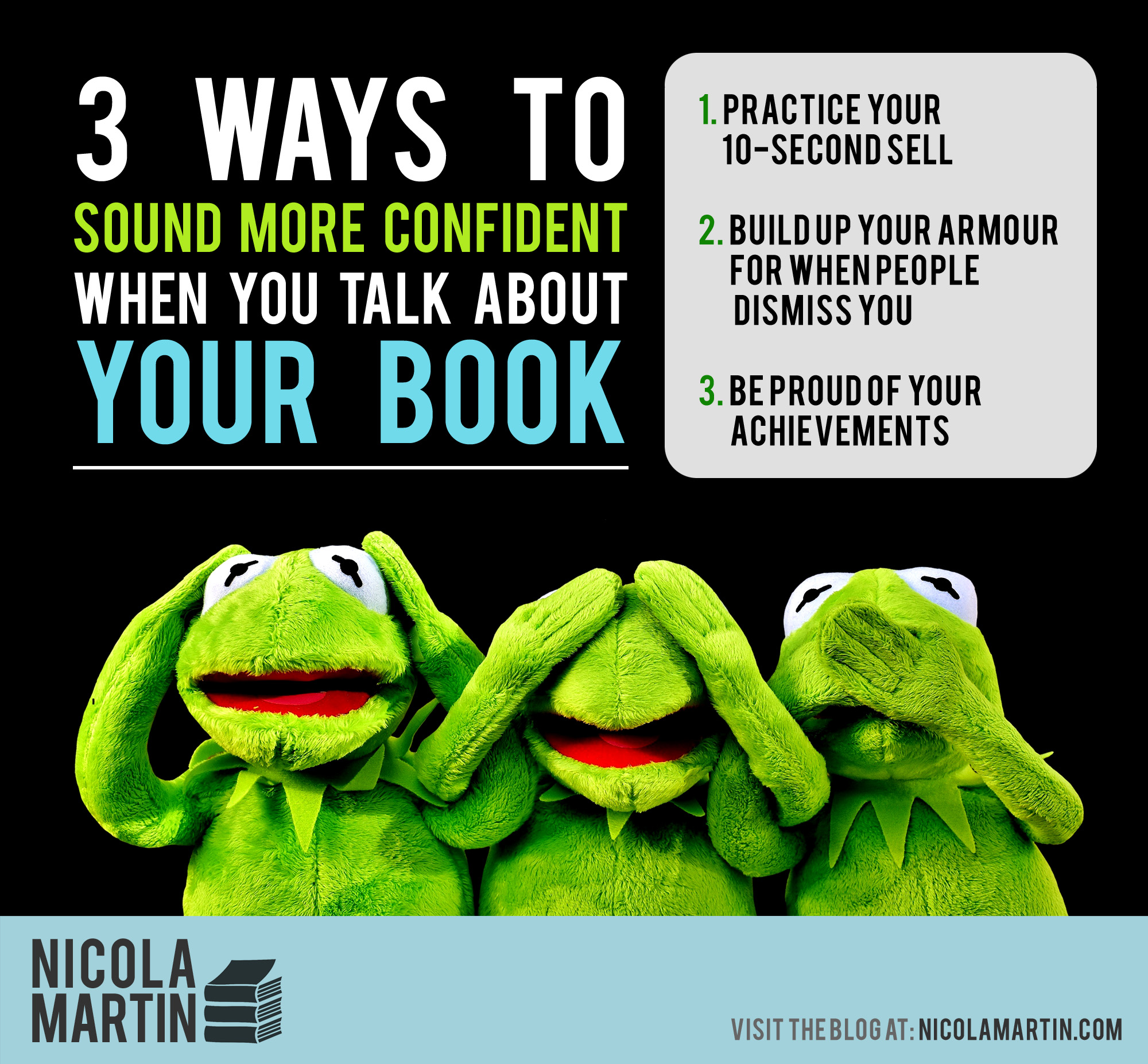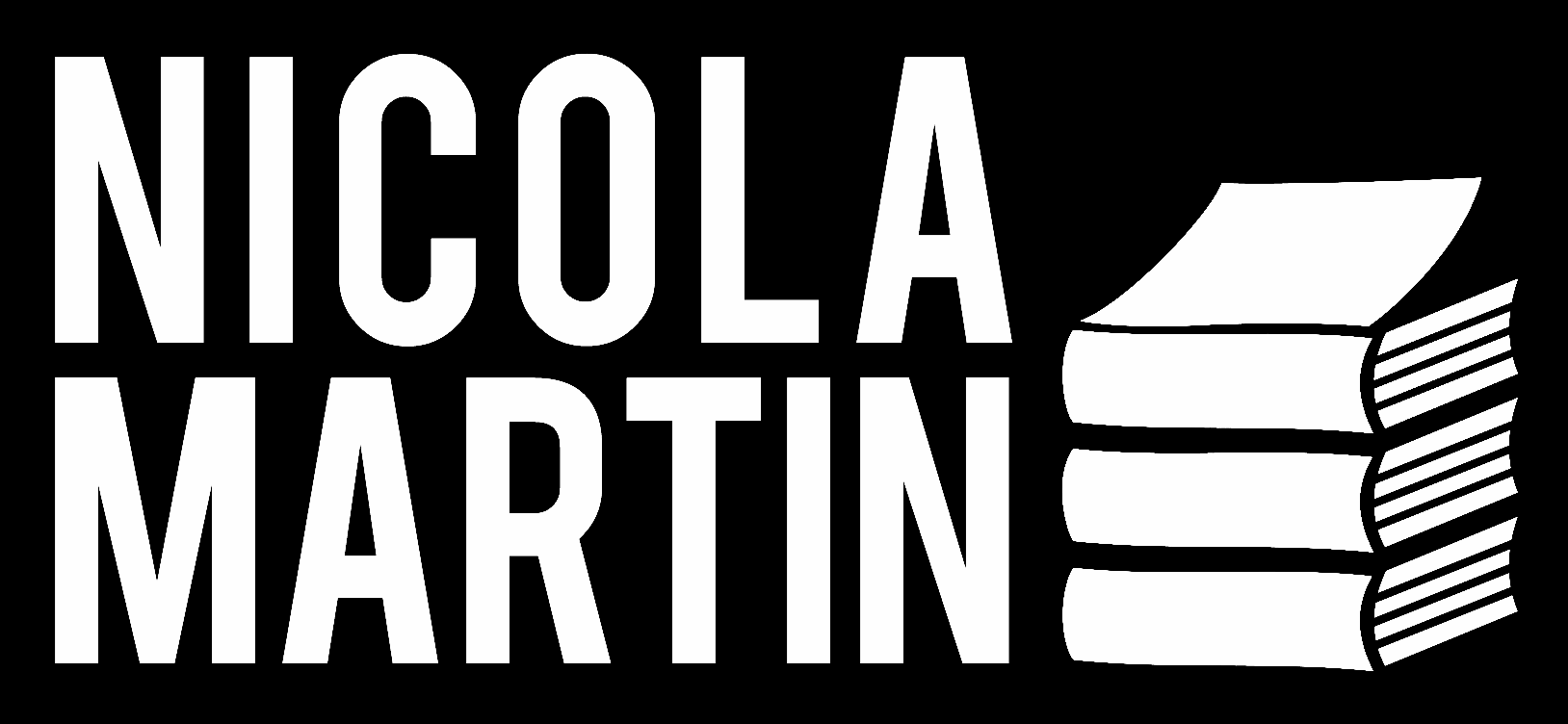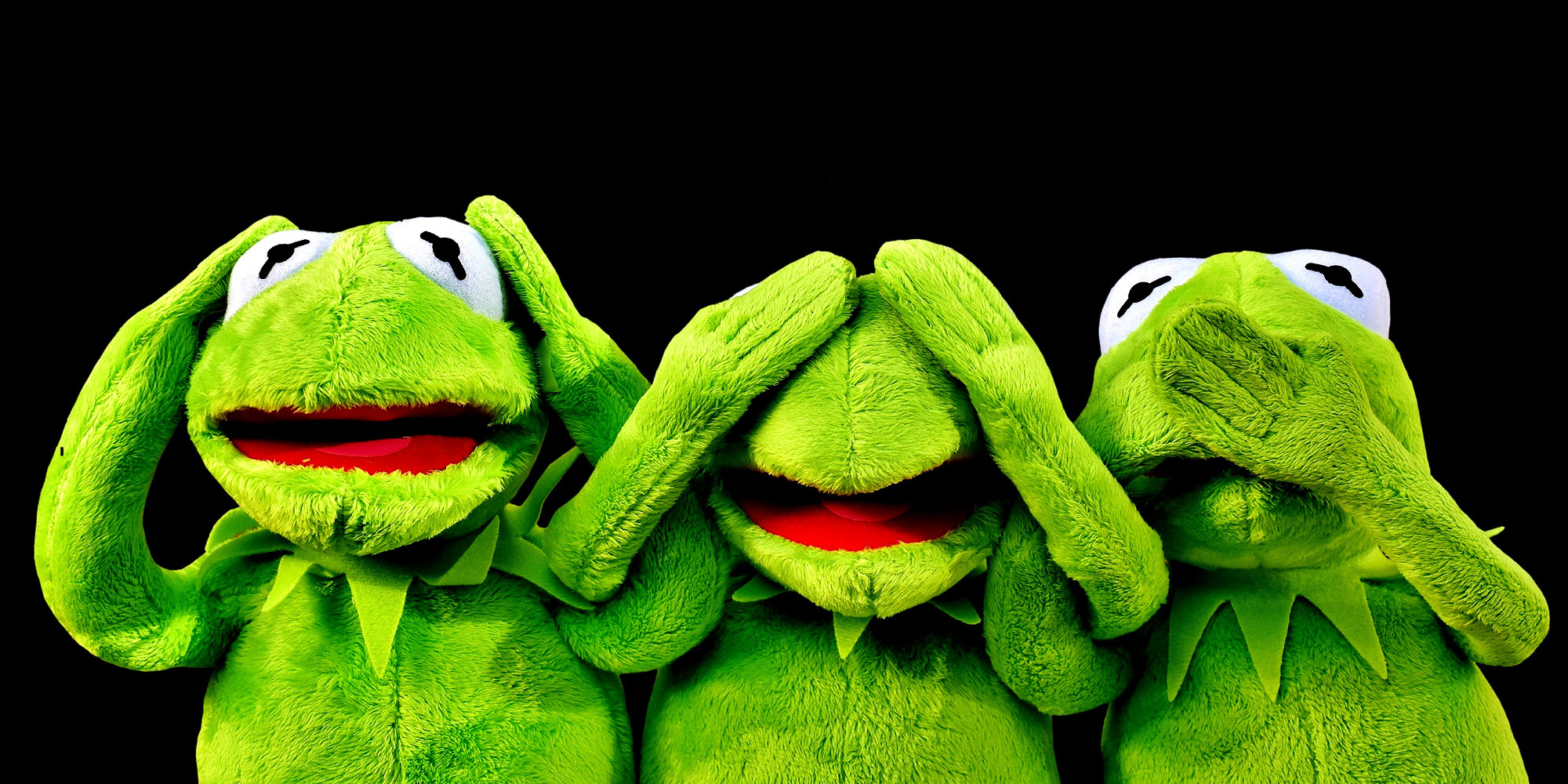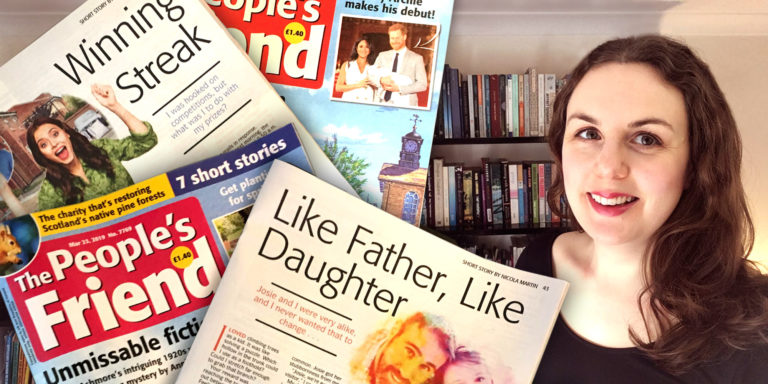One bad habit that writers need to break
It’s time to stop cringing when people ask if you’re a writer. It’s time to stop waving your hand when people ask what you write.
For a long time, when people would ask if I was a writer, I would make a face. A full-on Kermit-style twist of the mouth.
If I managed to grit out a yes and the person asked what type of things I wrote, I would again be possessed by a cringing, shrugging, hand-waving movement. “Uhhh …” I might say.
Maybe this is ringing bells for you. I’ve noticed that a lot of writers grimace or hedge when asked about their work.
Why do we do this?
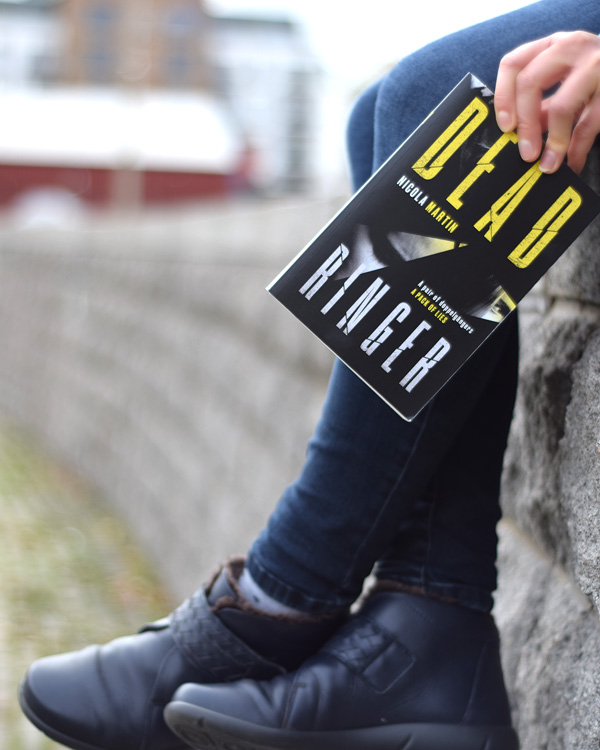
Lack of conviction
It can feel braggy to say, “I’m writing a book.”
If you’re struggling through a first draft, or you don’t yet have a publisher, it can also feel like you’re a fraud. You’re not a real writer yet, because you don’t have (delete as appropriate) a finished manuscript/an agent/a publisher/a three-book deal/a bestseller sticker.
Let me tell you, Imposter’s Syndrome never goes away. My crime novel, Dead Ringer, comes out in February, but because it’s not a bestseller, because there aren’t posters for it on the Tube, part of me feels inadequate.
There will always be someone to compare yourself to. But their achievements don’t diminish yours.
No matter where you are in the process, as long as you’re writing, you deserve to call yourself a writer.

Lack of practice
Writing is intensely private. I think of it as a room in my home that only I have the key for.
We spend hours hunched over our keyboards writing. We spend relatively little time talking about our writing.
Sure, I could write you a long email about my new novel. But ask me casually at a party what I’m working on and I’ll freeze up. I’m not used to verbalising those concepts that only exist for me on the page.
Lack of knowledge
Another reason writers pull a Kermit face when asked about their book is that they lack the vocabulary to talk about it. Do any of these sound familiar?
“It’s sort of a thriller, sort of not.”
“It’s a bit out there, not sure what I’d compare it to.”
“It’s about relationships, but it’s not a romance.”
As readers, unless we grew up devouring sci-fi novels or romance reads, we probably didn’t think much about genre. When I first started writing a novel, I just wrote what I wrote.
However, if you are simply writing what’s in your heart, you may find it difficult to boil a description of it down into a single sentence.

Does it really matter if you can’t talk about your writing?
Maybe you’re making that same shrugging, hand-waving gesture right now. Let the writing speak for itself. It doesn’t matter if I say things like, “I write, but only a bit and not seriously” or “I don’t know how I’d describe my writing, it’s not that great anyway.”
The trouble is, cringing away from questions about your writing takes a psychological toll.
If you act like you’re not worthy of being taken seriously as a writer, your own self starts to believe that. It makes it easier to give up. And you know what definitely doesn’t get you a book deal? Quitting.
So what can you do to get better at talking about your writing?
Practice your ten-second sell and readalikes
Most people you’ll meet casually aren’t interested in a long spiel about your writing. They want to know:
- What you’re writing (e.g. a novel)
- What the genre/category is (e.g. a psychological thriller)
- A few words to describe it (e.g. it’s about doppelgangers)
- What book you’d compare it to (e.g. it’s along the same lines as Gillian Flynn)
As long as you know the answers to these questions, casual conversations about your writing get a lot easier.
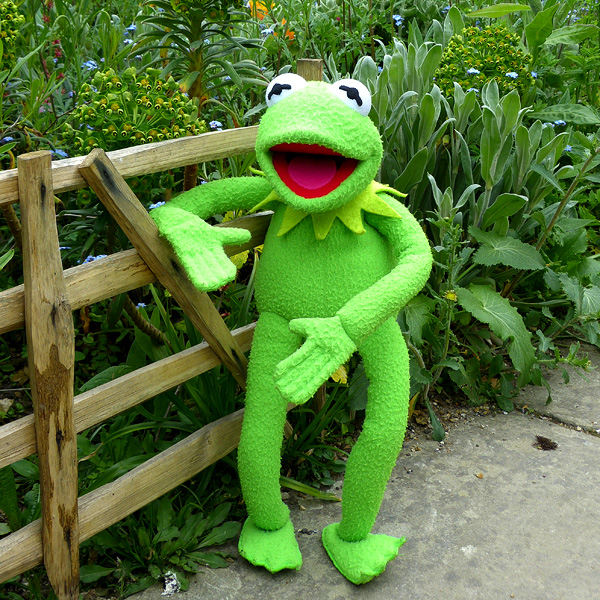
Build up armour for when people dismiss you
Unfortunately, even armed with these short pithy answers, you’ll inevitably meet people who’ll dismiss you. Most of them won’t mean to do it, but they’ll act like your book’s worthless because it’s (delete as appropriate) not yet finished/not yet published/not yet a bestseller.
Personally, in these situations, I find it’s useful to force an air of cheeriness, even if I’m not feeling it – e.g. “I’m looking for a publisher at the moment. It’s a tough process, but I’m hopeful.”
Be proud of your achievements
Remember that most people, including those who daydream about being a bestselling author, never even write the first chapter of a book.
You’ve taken the next step. You’re actually undertaking the difficult task of writing.
Say it proudly, without that Kermit face: “I’m writing a book.”
Pin this post:
